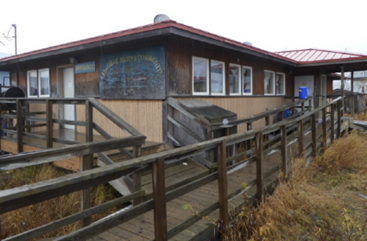
ACAP Working Group
@acap_arctic
The Arctic Contaminants Action Program, ACAP, is one of the six Working Groups of the @Arctic_Council.
ID: 3467449403
http://acap.arctic-council.org 28-08-2015 10:26:19
158 Tweet
549 Takipçi
38 Takip Edilen

NOETON, a Finnish deep-tech start-up, has developed affordable and efficient emission catchers for wood stoves and fireplaces, based on high-temperature electric collection of naturally charged soot particles. ACAP Working Group #blackcarbon Link: bit.ly/4ftNrI0

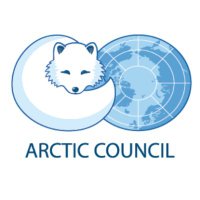
At the #COP29 side event on the #cryosphere co-hosted by the 🇳🇴 Chairship of the Arctic Council, Prime Minister Jonas Gahr Støre gave an address to kick off the event, which included high level speakers from 🇨🇱, 🇵🇰, 🇩🇪, 🇧🇹 & international organizations. This was his message.

Lillgrund Wind Farm, located off the coast of Sweden, has a 110 MW capacity and powers appr. 60,000 homes annually. As one of Sweden’s largest offshore wind farms, it plays a key role in supporting sustainable energy goals. ACAP Working Group #blackcarbon Link: bit.ly/4hJ0Ddp


The Togiak Heat Recovery Project captures excess heat from the local power plant, replacing heating oil for community buildings. This system offsets 13,691 gal of diesel annually, saving $77,080 ($2.3 mil over its lifespan). ACAP Working Group #blackcarbon Link: bit.ly/3AU4TpI


Bus fleet upgrade by Murmanskavtotrans in 2016 reduced its #blackcarbon emissions by 90%, or more than 1,050 kg per year. In addition to BC emission reductions, the fleet upgrade helped reduce NOx emissions by about 24,500 kg per year. ACAP Working Group Link: bit.ly/3O9fCQ7


Since 2017, the Kugluktuk Arena Solar Project has expanded to a 60 kW system, offsetting 70,000l of diesel annually & saving $64,000 in energy costs. This solar setup marks a sustainable shift in powering community spaces. ACAP Working Group #blackcarbon Link: bit.ly/4fNUYAR
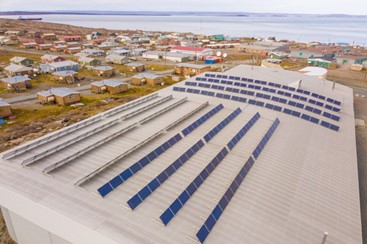

Nuvista Kwethluk Energy Storage project integrates a 500 kW/670 kWh battery into the Kwethluk wind-diesel system, covering peak load needs for > 1 hr or providing 2.5 hrs of emergency power. Estimated savings are > $60,000. ACAP Working Group #blackcarbon Link: bit.ly/4hWv683


A Marine Renewable Energy Microgrid in Igiugig, Alaska, will harness the Kvichak River to power village facilities with two 35 kW marine devices. Generating 456 MWh annually, this project saves $170,000 per year in fuel use. ACAP Working Group #blackcarbon Link: bit.ly/4fUweHc


Alholmens Kraft Power Station (Finland) is 1 of the world's largest biofuel-fired power plants, with capacity of 265 MW. Fueled by biomass & peat, it supplies heat & electricity to industry & homes, reducing fossil fuel use. ACAP Working Group #blackcarbon Link: bit.ly/3Zf6hNl
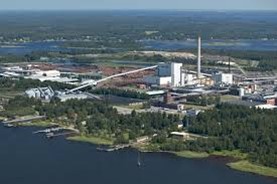

2016: The Valday Cluster of projects installed hybrid solar-diesel power generation systems in 5 remote villages in Karelia, Russia, demonstrating viability of renewables in the #Arctic, with +/- 60% savings from reduced diesel consumption ACAP Working Group Arctic Council #blackcarbon


The Huslia Tribal Council Biomass Project heats 60% of community buildings, offsetting 23,000 gallons of diesel and saving $57,000 annually. This project reduces heating fuel by 75%, cutting #blackcarbon emissions by 4,737 tons. ACAP Working Group Link: bit.ly/49ib4kx


Avedøre Power Station in Denmark is a versatile energy hub, capable of producing 810 MW of electricity & heat from biomass, natural gas, and oil, & plays a vital role in Copenhagen’s green transition & reducing emissions. ACAP Working Group #blackcarbon Link: bit.ly/3OopdTs


The NANA Regional Corporation's solar deployment brings 625 kW of solar PV across three Northwest Arctic communities, generating 802,400 kWh & displacing 59,028 gal of diesel. Kotzebue alone offsets 770 tons of #blackcarbon emissions. ACAP Working Group Link: bit.ly/3CGTJp0


Vacuum Sanitation Energy Efficiency Retrofits Project in Kotlik, Alakanuk, & Noorvik cut electricity use by 214,843 kWh, reducing diesel by 20,349 gal annually, a 48.1% reduction, enhancing efficiency in permafrost regions. ACAP Working Group #blackcarbon Link: bit.ly/49aJx4d

In 2014, Minto Lodge achieved up to an 86% reduction in fuel use with spray foam insulation, new windows/doors, & a biomass heating system, cutting energy costs by 30-50%. A model for energy efficiency in remote communities. ACAP Working Group #blackcarbon Link: bit.ly/3CJwria


The Geothermal Plant at the Chena Hot Springs Resort, Alaska's first geothermal project, powers the facility and offsets 148,785 gal of diesel annually, cutting fuel use by 50% and saving $383,000 in heating costs each year. ACAP Working Group #blackcarbon Link: bit.ly/49aHGfT


Middelgrunden Offshore Wind Farm, near Copenhagen, Denmark, was 1 of the world’s 1st large-scale offshore wind farms. With 40 MW capacity, it powers thousands of households & is a prime example of community-owned renewables. ACAP Working Group #blackcarbon Link: bit.ly/3CPV7pr
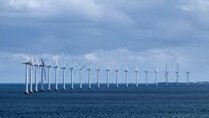

Juneau Int-l Airport integrated geothermal energy during its terminal renovation. Ground source heat pumps replaced oil boilers, cutting over 41K gal of diesel use annually while heating water & powering an ice-melt system. ACAP Working Group #blackcarbon Link: bit.ly/3Zbfyoh


The Aniak Energy Efficiency Retrofit Project upgraded four buildings with air-tightening, efficient HVAC, thermostats, and LED lighting. It reduced fuel use by 1,802 gallons, offsetting 84,594 pounds of #blackcarbon, and lowered costs. ACAP Working Group Link: bit.ly/4gvf1Vp


Akiachak Energy Efficiency Retrofit Project upgrades five buildings with LED lighting, setback thermostats, & variable speed pumps, saving $17,369 in energy costs & $2,085 in maintenance annually, boosting energy efficiency. ACAP Working Group #blackcarbon Link: bit.ly/4fRNkWO
